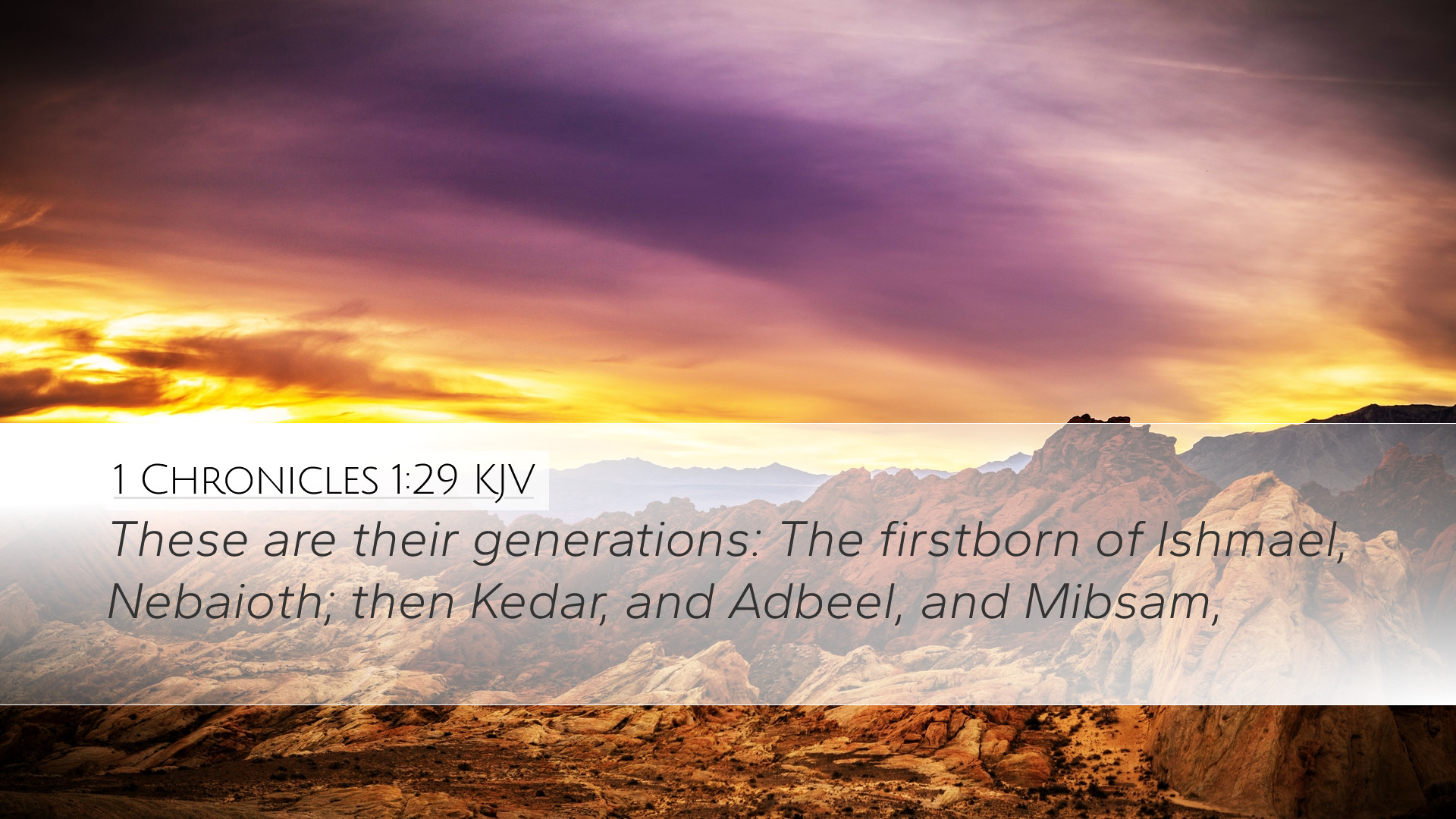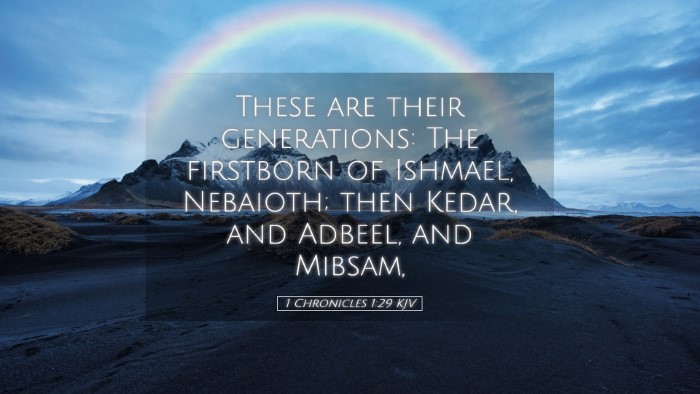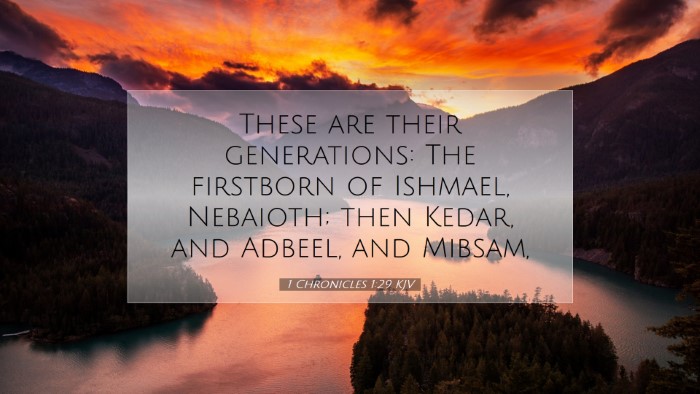Commentary on 1 Chronicles 1:29
1 Chronicles 1:29 reads: "These are their genealogies: The firstborn of Isaac was Esau, and the second was Israel." This verse serves as an introductory statement regarding the descendants of Isaac, setting the stage for the historical narratives that follow. The genealogical purpose of Chronicles is underscored in this opening, focusing on themes of heritage, legacy, and divine election.
Contextual Overview
This passage falls within a broader genealogical framework that spans the entirety of 1 Chronicles 1. The genealogy traced here highlights the significance of lineage in Israel’s history and demonstrates the emphasis on God’s covenant with Abraham, Isaac, and Jacob (Israel).
Matthew Henry's Insights
According to Matthew Henry, this verse underlines the divine order in the lineage from Isaac to Jacob (Israel). Henry notes that:
- Divine Choice: God’s choice of Jacob over Esau illustrates the sovereign will of God. This choice was not based on merit but was a part of divine purpose.
- Firstborn Significance: While Esau was the firstborn, it is Jacob who inherits the blessings, highlighting the theme of the unexpected reversal of human expectations.
- Genealogical Importance: Henry emphasizes the importance of genealogies in understanding God’s covenant promise and the unfolding of His redemptive plan through Israel.
Albert Barnes’ Commentary
Albert Barnes contributes further by elucidating on the significance of the characters mentioned and the implications for the covenant community. His observations include:
- Covenantal Lineage: Barnes points out that tracing genealogy serves to reaffirm the Israelites' identity as a covenant people. The distinction made between Esau and Israel is critical to understanding the fulfillment of God’s promises.
- Historical Roots: He illustrates that the lineages narrated throughout 1 Chronicles serve to root the Israelite faith in historical reality, connecting their past with their present spiritual identity.
- God’s Sovereignty: Barnes stresses God’s sovereignty in the choosing of Israel. Despite human perception of worth and value, God’s selection stands independent of human standards.
Adam Clarke’s Reflections
Adam Clarke offers a theological reflection on the implications of this genealogical statement:
- Spiritual Heritage: Clarke posits that the lineage of Isaac reflects the journey of faith from Abraham through Isaac to Jacob, emphasizing the importance of spiritual heritage in shaping the identity of God’s people.
- Typology of Election: He sees the narrative as a foreshadowing of God’s electing grace, which ultimately finds its fulfillment in Christ, the ultimate descendant of Israel.
- Esau as a Warning: Clarke draws attention to Esau's role, not merely as Jacob's brother but as a cautionary example of losing one's birthright and divine blessing due to earthly distractions and impulsive decisions.
Theological Implications
This verse, and its broader context, present various theological implications for today's pastors, theologians, and scholars:
- Understanding Divine Sovereignty: The narrative affirms God's sovereignty in history and His purposeful selection of people for specific roles in His redemptive plan.
- Covenant Identity: The emphasis on genealogy serves as a reminder of the importance of identity rooted in God's covenant promises. Understanding one’s spiritual heritage can enrich faith and ministry.
- Redemptive History: Scholars are encouraged to view genealogies not merely as historical records but as integral pieces that form the tapestry of redemptive history, which leads to the New Testament revelation in Christ.
Conclusion
In summary, 1 Chronicles 1:29 invites attentive reflection on the nature of God's promises throughout Scripture. As highlighted in the commentaries of Matthew Henry, Albert Barnes, and Adam Clarke, the verse encapsulates profound truths regarding divine election, covenant identity, and the historical trajectory that leads to a deeper understanding of faith in the modern era.


